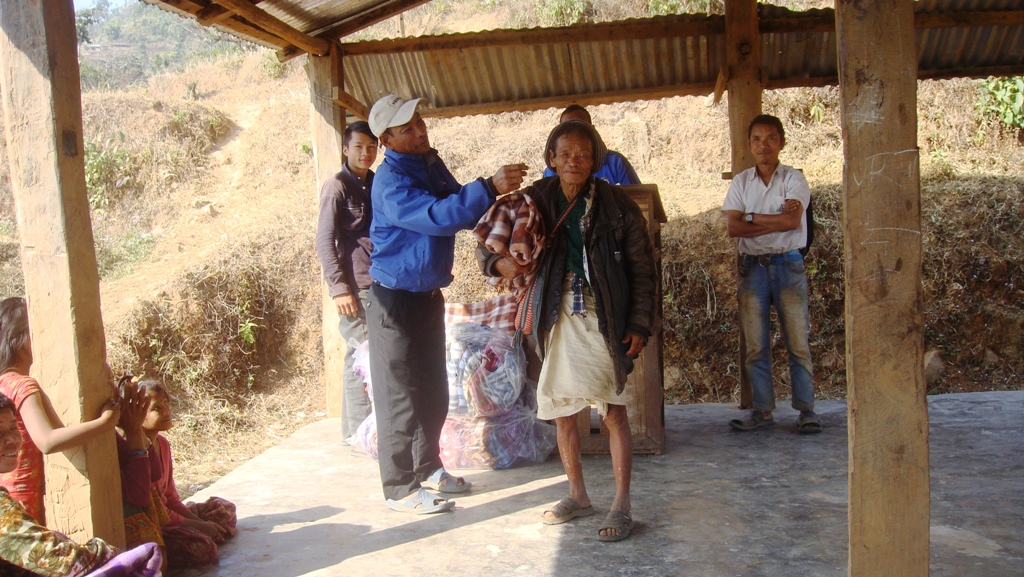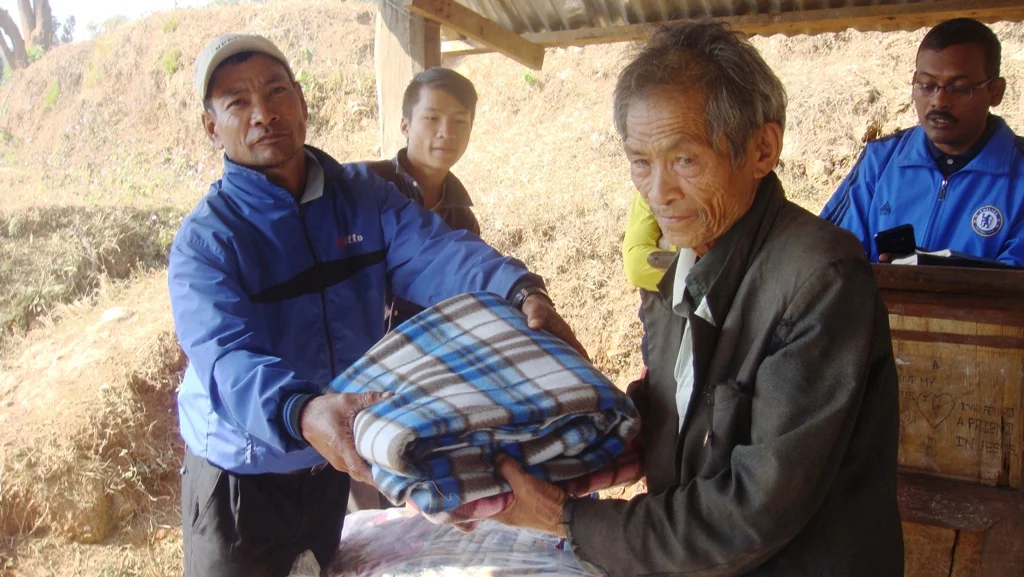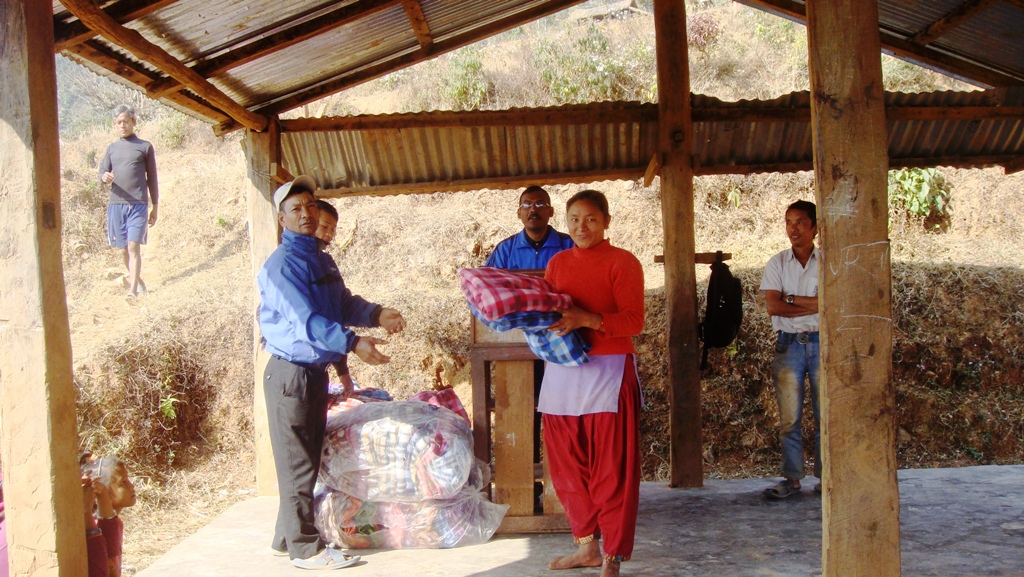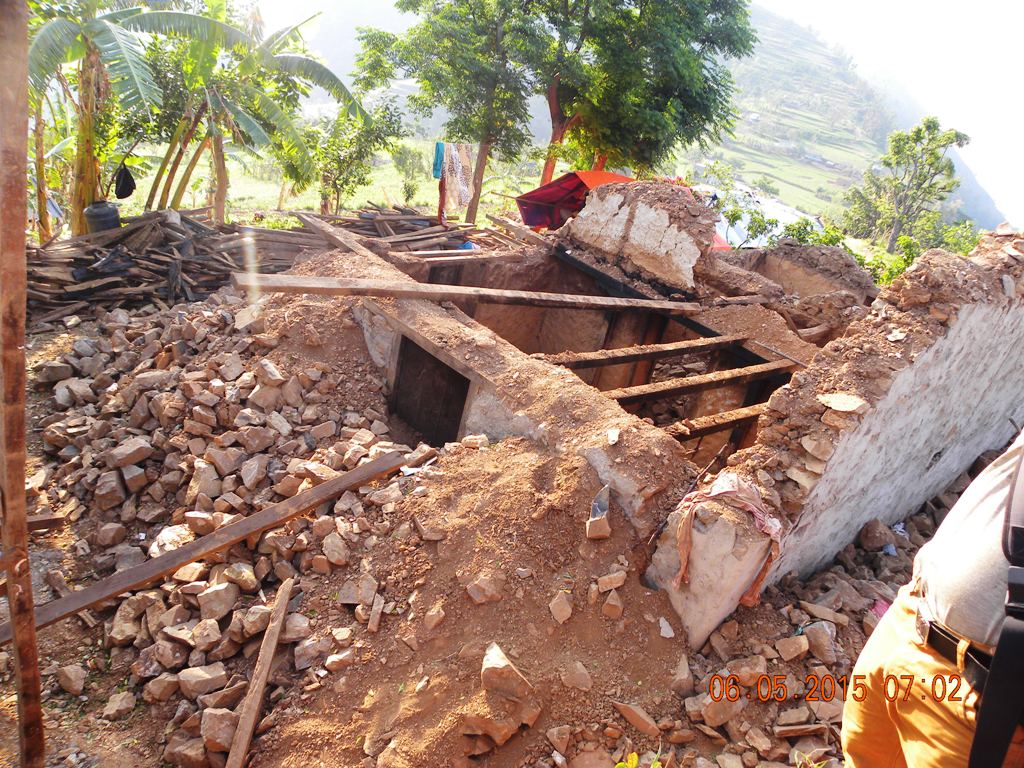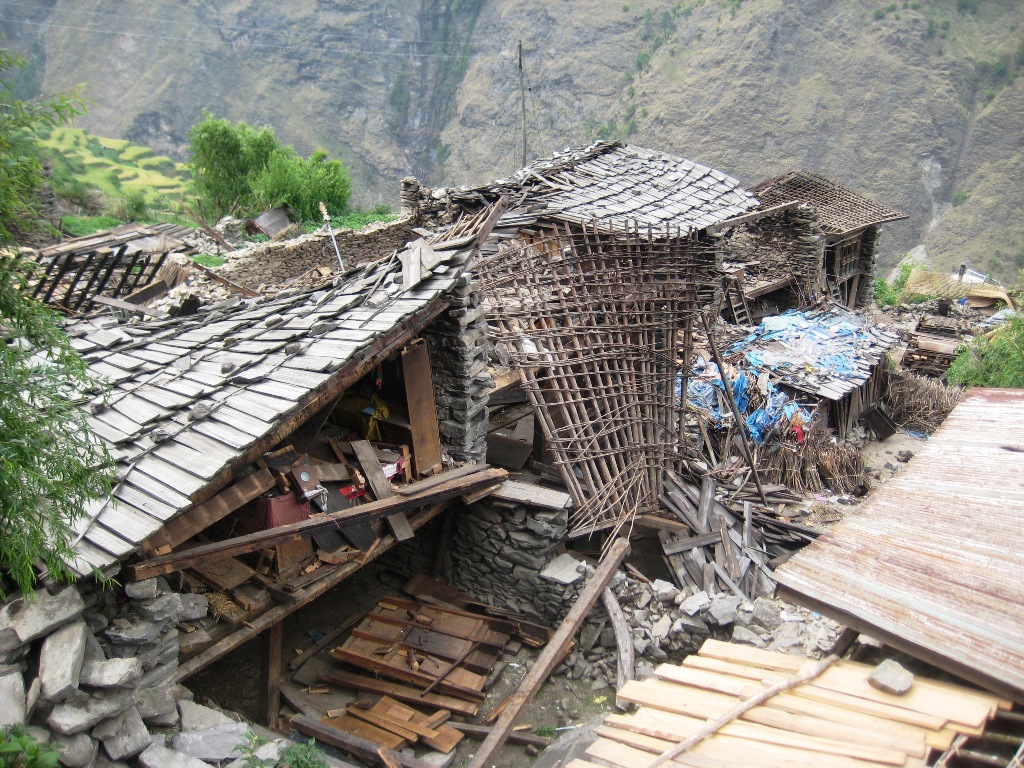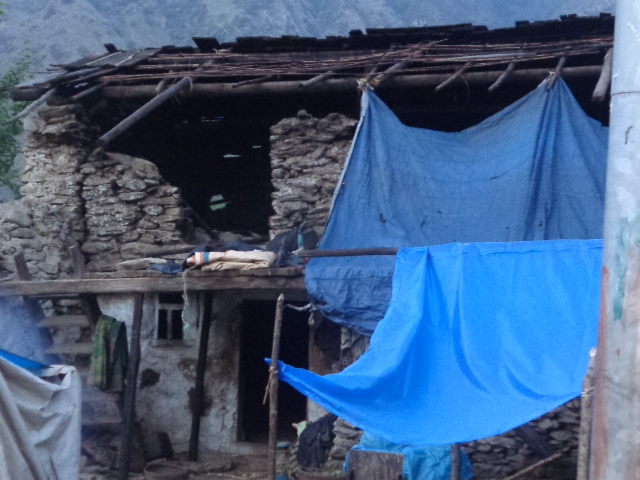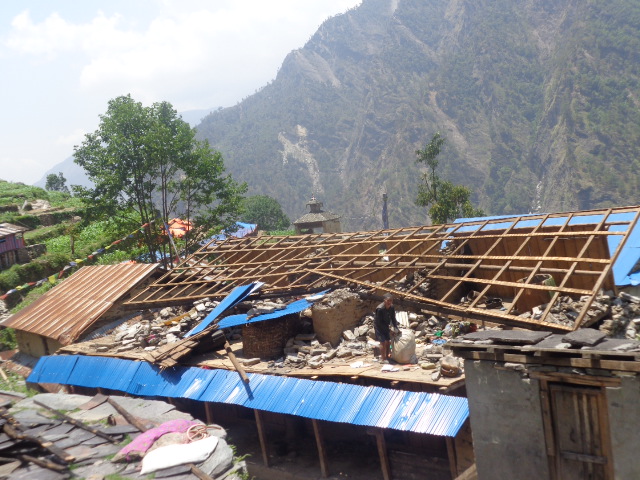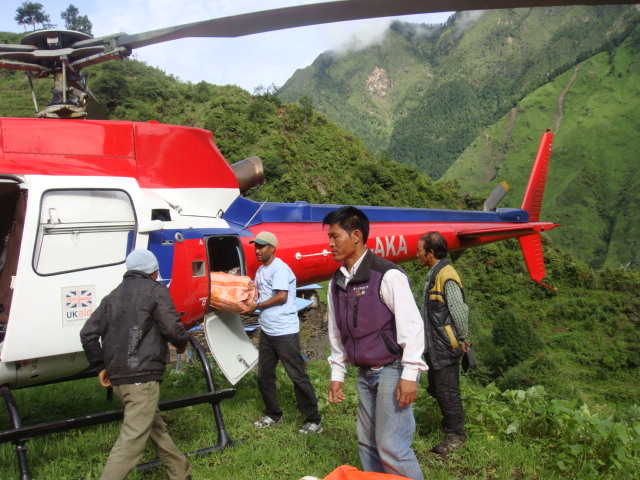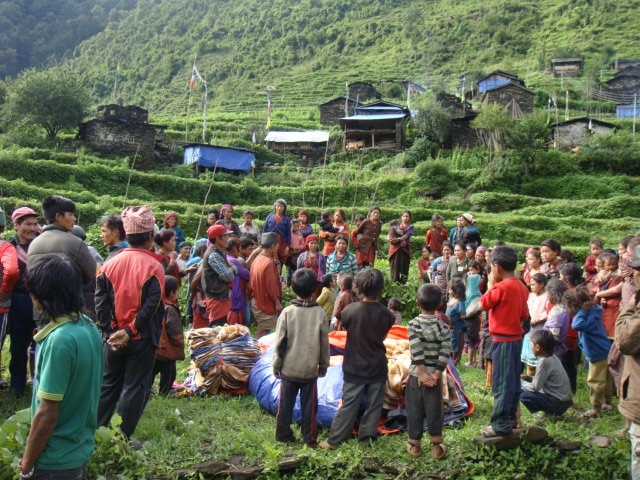To our many friends who have helped those in need in Nepal:
Christmas Day marked the eight-month anniversary of the 7.8 magnitude earthquake that struck Nepal on the 25th of April. Nearly 9,000 people lost their lives, countless thousands were injured, and hundreds of thousands of families lost their homes. The needs facing the people of this beleaguered country today are nearly as great as they were eight months ago. Assistance has been given – yes – but it has for the most part been emergency in nature and short-term in scope. It has not addressed permanent rebuilding of lives.
The most urgent problems were for emergency relief. That was made more pressing with the upcoming monsoon season June 15-Sept. 15. It was made more complicated because we had to evaluate the damage and develop a plan to meet the greatest needs of the most people. Initially our efforts were focused on emergency relief of food, clothing, blankets, and weather protection.
September 15 to December was a window of opportunity between the monsoon and winter. Improved shelter for the homeless was desperately needed before winter. It was also the time of early preparation for the rebuilding phase that would have to wait until February/March. Early preparation included tearing down dangerous buildings, saving anything/everything that could be used again, clearing the ground for foundations, and collecting local building materials such as rocks and beams.
The following is the opening paragraph on The Himalayan Times editorial page from December 30: “It has been about eight months now after the deadly earthquake of April 25 and several strong aftershocks aftermath. Yet relief has yet to reach many of the earthquake victims. They still are living in makeshift shelters. They had suffered in the rainy season and things are getting from bad to worse in the chilly winter without warm clothing. That it is taking so long to provide the urgently needed relief to the victims is something the government and concerned agencies should be ashamed about. Without adequate food, shelter and drinking water the elderly and children in particular are suffering immensely and also lactating mothers. The funds provided by friendly countries are yet to reach those for whom they were meant for. Foul play is also suspected as there is no record of how they are being used.”
What we have been able to do would not have been possible without you … groups as well as individuals. Together we have accomplished much. Together we have eased the pain and brought sunshine to lives in living conditions that Americans would not want to experience even before the earthquake. Poverty is ugly. Poverty plus tragedy will break your heart.
We have learned much. Our planning and execution has improved greatly.
1. Know where the needs are the greatest and what they are.
2. Set realistic priorities.
3. Make wise use of your time and resources [hard goods and money].
4. Distribute the relief items, including money, as per your priorities, and then have enough oversight to see that they are used as planned.
Together we have lessened the pain and suffering of thousands. The goal before us now is to provide means for these people to rebuild their lives so they can once again become self-sufficient members of their communities.
Muscle Shoals, AL became a center for some fund raising. Their primary goal was to provide some relief for every Christian family in need. With the help of leaders in many local areas, they classified the needs into [a] moderate, or [b] great. Mike Brooks came to Nepal in October to work with our central committee and the local leaders to distribute about $175,000. Families with the greatest needs were given $450. Families with lesser needs were given $225.
Plans are underway to assist those living in remote villages construct homes using wood from the nearby forests together with materials salvaged from the homes that were destroyed. The cost per home is $2,000. Children of Kathmandu, a Montana based organization, has been helping educate and support poor children in Nepal for 18 years. They have provided money to rebuild 80 homes in the high mountain areas. $10,000 has been delivered for loggers to begin cutting and preparing wood. Winter will delay much of the building.
We see a pattern that is well known to those who have helped in other disaster areas [floods, tsunamis, earthquakes, famine, etc.]. The total amount of money already spent seems very large. However, the sums distributed to each family are very small considering the needs.
What does the future look like? We have about $200,000 on hand, including $150,000 from Children of Kathmandu. We expect about $100,000 more over the next four months. That means we can assist with building about 150 homes. There are over 600 families that need assistance with rebuilding homes.
At the present time we can make no plans or commitments beyond that time. In the coming months we will continue to provide food and clothing as needed but our primary efforts will now be focused on raising funds for building permanent homes. We are committed to follow the four-point pattern listed earlier in order to meet the greatest needs of the most people.
Three groups left Kathmandu on Friday, January 1 to deliver 1,000 blankets plus $400 for each area to buy some warm clothing. This is a tremendous help, and at the same time it leaves so much undone. The challenge is great.
Obviously we could not have accomplished the things done in the past, or continue to help those in need in the future, without your assistance. If someone had told us on April 26th that over half-a-million dollars would be available for this disaster, we would have had trouble believing them. At that time we could never have imagined the extent of the damage or the magnitude of the needs. We thank God and also thank every one of you for your love and gracious outpouring of generosity.
We will continue to pray to God while we continue to serve others using whatever resources we have available. This is truly an example of humility, compassion and fellowship that stretches around the world to provide a common good to those who desperately need help.
Parsuram Sunchuri psunchuri@yahoo.com
Gajendra Deshar gajengra_deshar@yahoo.com
Jerry Golphenee jrgx21958@gmail.com

